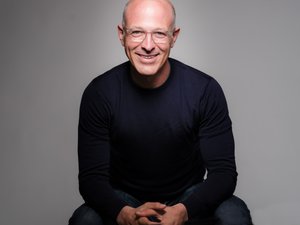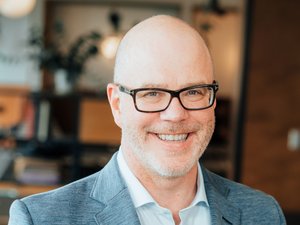After reading Michael Lewis' "Moneyball," Village Capital's Ross Baird wrote the author a letter. He saw a real problem in America's venture capital scene — most of the funding was going to hubs like San Francisco, New York and Boston while the rest of the country was being left behind. Lewis should write a book about that, Baird said.
But, of course, Lewis is pretty busy. So, he wrote Baird back and said just that, with an added caveat: "You should write a book on it."
Two years of writing and editing later, and Baird has done just that. His book, "The Innovation Blind Spot," debuted Monday, and AOL co-founder and Revolution CEO Steve Case wrote the forward for it.
"If you look at our political environment, it's pretty obvious that the economy is not working for a lot of people. Everyone in D.C. was basically shocked when Donald Trump won," Baird said.
"My answer to 'What happened?' is that a lot people in D.C., New York, San Francisco ignored the rest of the country, and they thought things were going well, and they weren't."
"The Innovation Blind Spot" highlights the problems surrounding how investors invest in new ideas, and he includes the stories of hundreds of entrepreneurs and investors across the United States.
"I'm confused as to why our economy — particularly our startup economy and innovation economy — is so concentrated," Baird said in an interview. "It's a pretty stark problem, and it's only getting worse."
Turning to a book wasn't Baird's first step in tackling this problem. Village Capital, the investment firm he co-founded, has made 90 percent of their investments outside of the three major VC hubs, at least 45 percent of their investments have been in women-led ventures and about 25 percent have been in people of color, he said. Baird has even traveled alongside Case as a part of Revolution's "Rise of the Rest" tour to highlight lesser known startup hubs.
"The way we think about the American dream and the role that entrepreneurship plays on it, for most people, is going in the wrong direction," Baird said. "I think part of the reason why now is that we have great people who are laying out blueprints for how we can invest differently, and we have communities that are rising and growing, but the mainstream isn't there yet."
"The way we think about the American dream and the role that entrepreneurship plays on it, for most people, is going in the wrong direction."
Writing a book is no small feat, especially considering the growth behind Village Capital in recent years. He found time on airplanes and during layovers throughout his travels in the past two years to piece it all together. All while Village Capital has grown and undergone a restructuring effort.
But Baird said, in working on the book, he found some much needed time to self-reflect and assess his work.
"When you're running an organization, you very rarely have time to take a step back and think and check your assumptions," Baird said. "The best part of writing the book was reaching out to our entrepreneurs and our investors and getting feedback."
That's why Village Capital is expected to reshape some of its future investments and their investment philosophy.
"The editing process was some of the best forms of strategic planning I've ever had," he said.
"It's very unlikely that [our future model] will look like Silicon Valley venture capital. That's because we have different financing structures, different processes, and I think a more inclusive pipeline."




